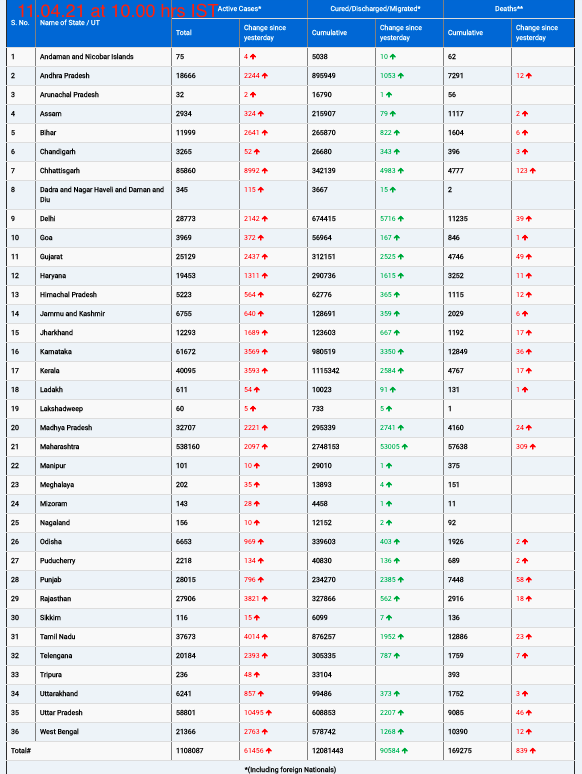In 2024, the Ministry of Health and Family Welfare introduced several landmark initiatives aimed at strengthening India’s healthcare infrastructure and expanding access to essential services. Among the most significant were the extension of the Ayushman Bharat scheme to include citizens aged 70 and above, and the launch of the U-WIN digital platform for vaccinating pregnant women and children. These developments, alongside efforts to address key medical challenges, highlighted a year marked by progress, even as controversies surrounding the National Medical Commission (NMC) persisted.
Ayushman Bharat’s Expansion: A Major Step for Senior Citizens
The year saw the Ayushman Bharat Pradhan Mantri Jan Arogya Yojana (PM-JAY) expanded to provide health coverage for individuals aged 70 and above, a move that benefited an additional 6 crore senior citizens. The scheme’s extension underscores the government’s focus on ensuring access to quality healthcare for the elderly, a vulnerable segment of the population. Additionally, the Ayushman Vay Vandana Cards, launched in October 2024, have already enrolled 25 lakh senior citizens, providing them with enhanced healthcare benefits.
U-WIN Portal Revolutionizes Vaccination Tracking
In another key achievement, the Health Ministry rolled out U-WIN, a digital platform designed to record vaccinations for pregnant women and children under the Universal Immunization Programme. Modeled after the successful Co-WIN system used for COVID-19 vaccinations, U-WIN promises to improve the efficiency and tracking of immunization efforts, creating a robust digital record that will ensure better coverage and monitoring across the country.
Addressing Medical Infrastructure and Security Concerns
The shocking rape-murder case at West Bengal’s RG Kar Hospital sparked nationwide concern about the safety of healthcare workers. In response, the Ministry of Health focused on improving medical infrastructure, enhancing security measures for healthcare professionals, and addressing the difficult working conditions often faced by doctors and nurses. This issue gained further traction with widespread demands for a central law to prevent violence against healthcare workers.
In line with this, the NMC introduced guidelines to reduce the working hours of resident doctors to 74 hours per week and mandated at least one day off. The commission also recommended better facilities for doctors, including comfortable rest areas and nutritious meals, to ensure both their well-being and patient safety.
National Medical Commission Faces Controversy
While the health ministry made strides in many areas, the NMC faced ongoing controversies. The commission’s decision to reintroduce outdated and contentious terms in the MBBS curriculum, such as those related to “sodomy” and “lesbianism,” was met with fierce backlash from medical professionals and social activists. The NMC had to retract and revise these guidelines, highlighting the tension between the commission and various stakeholders.
Further controversy erupted following the alleged paper leak of the NEET-UG exam, which prompted the ministry to postpone the NEET-PG examination for 2024. The delay in the exam, followed by disruptions in the counseling process, added stress to an already tense academic environment.
Innovative Healthcare Initiatives and Technology Use
The health ministry also made strides in technological innovations. A significant development was the launch of drone services at 11 tertiary healthcare institutions across India, which are now being used to deliver medical supplies and samples to remote and hard-to-reach locations. The introduction of helicopter emergency medical services at AIIMS Rishikesh further demonstrated the government’s commitment to improving healthcare access, especially in challenging terrains.
Additionally, the Union Health Ministry rolled out the BHISHM cubes, portable and modular medical facilities designed to provide emergency care during public health crises. These units have been deployed to 25 AIIMS and other institutions, with four cubes also gifted to Ukraine during the Prime Minister’s visit.
Focus on Tuberculosis and Disease Elimination
A major public health initiative towards the end of 2024 was the launch of a 100-day TB elimination campaign, targeting 347 high-risk districts. The initiative aimed to enhance TB detection and treatment outcomes, using a new, more efficient six-month treatment regimen under the National TB Elimination Programme (NTEP). This, coupled with the continued development of logistical plans for better disease management, marks a significant step in India’s efforts to combat tuberculosis.
Streamlining Drug Approvals
In another notable move, the Central Drugs Regulatory Authority waived clinical trial requirements for certain drugs already approved by major regulatory bodies like the US FDA and the European Union. This policy change is expected to accelerate the availability of crucial medicines for rare diseases, gene therapies, and drugs for emergency or defense purposes, contributing to faster access to life-saving treatments.
Looking Ahead
As 2024 comes to a close, the Health Ministry’s efforts reflect a clear commitment to modernizing healthcare systems, expanding access to services, and addressing the evolving challenges within the sector. However, as controversies surrounding the NMC continue to unfold, balancing progress with effective governance will remain a critical task for the government in the coming years.
The health initiatives introduced in 2024 have laid a strong foundation for the future, aiming to build a more resilient and inclusive healthcare system in India.












